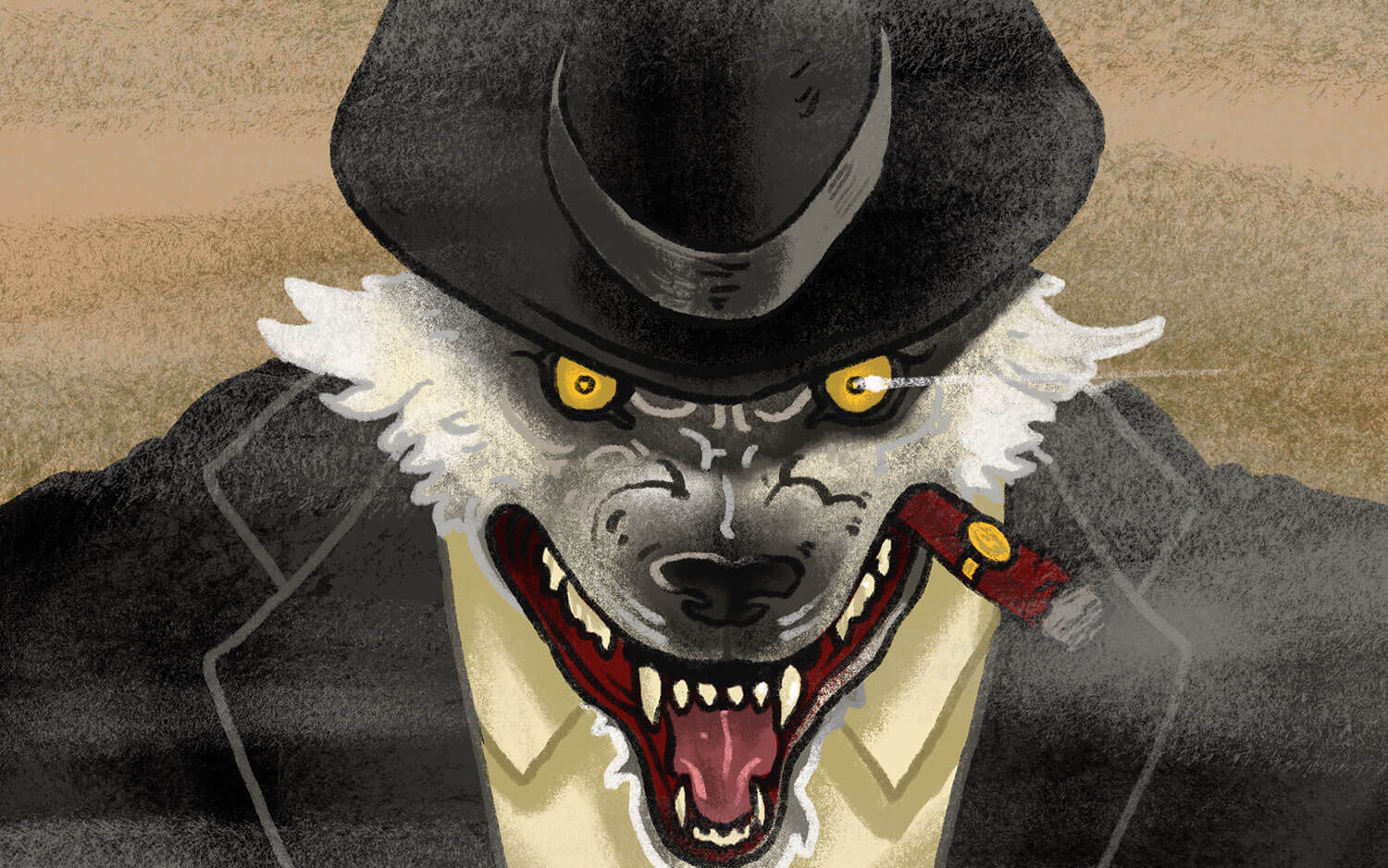
When I first arrived in Los Angeles in 1981 to do my Master of Divinity program at the School of Theology at Claremont, I was full of dreams to learn from this “Brave New World”. As a student political activist from South Korea who had my own torture and prison experience due to my fight against military dictatorship and fight for democracy (both of which were supported by the U.S. government), the U.S. itself was my research field on a true face of democracy. I was intrigued by Los Angeles because this was the main place of settlement for Korean immigrants, the ending point of “the Wild West”, and the city of “angels”. As a 25-year-old young woman who grew up in Korea with stories of those Korean immigrants who achieved the “American Dream” in “the Land of Opportunities”, Hollywood films of adventurous and righteous cowboys, and the angelic generosity of U.S. people who sent relief good to my small war-torn country during the Korean War, Los Angeles and this country called “America” were fascinating. I wanted to learn the best of this country as much as possible with the intention of going back to my country to build a true democracy.
Thirty-eight years later, I work as a professor of Interfaith Engagement at Union Theological Seminary in New York City, the cosmopolitan city known as “the Belly of the Beast” of neo-liberalism and globalization. What have I learned during these last 38 years from and about the U.S.? Many things. Both good and bad in the deepest and fullest meanings of those words.
There are many good things about U.S. heritages. What has been the most moving for me is the legacy of the people’s movements in this country, such as the women’s suffrage movement, the civil rights movement, the anti-war movement, the labor and immigrant workers’ movements, the LGBTQ movement, the ecological movement, and many others. The people’s expression and fight for their rights and justice, and their impact on legal, social, and cultural changes never stop inspiring me. As a theologian, I am especially grateful for Black spirituality crystalized by the life and work of African American religious leaders like Rev. Dr. Martin Luther King, Jr. and Malcom X. Their truth-telling and hope for the community of love and justice empowered so many people around the globe. “We Shall Overcome” has become a song of liberation for people in the freedom struggles throughout the world. I still see the great potential of this country in various people’s movements and their powerful expressions.
But I have also seen, tasted, and experienced the shadows of the U.S.
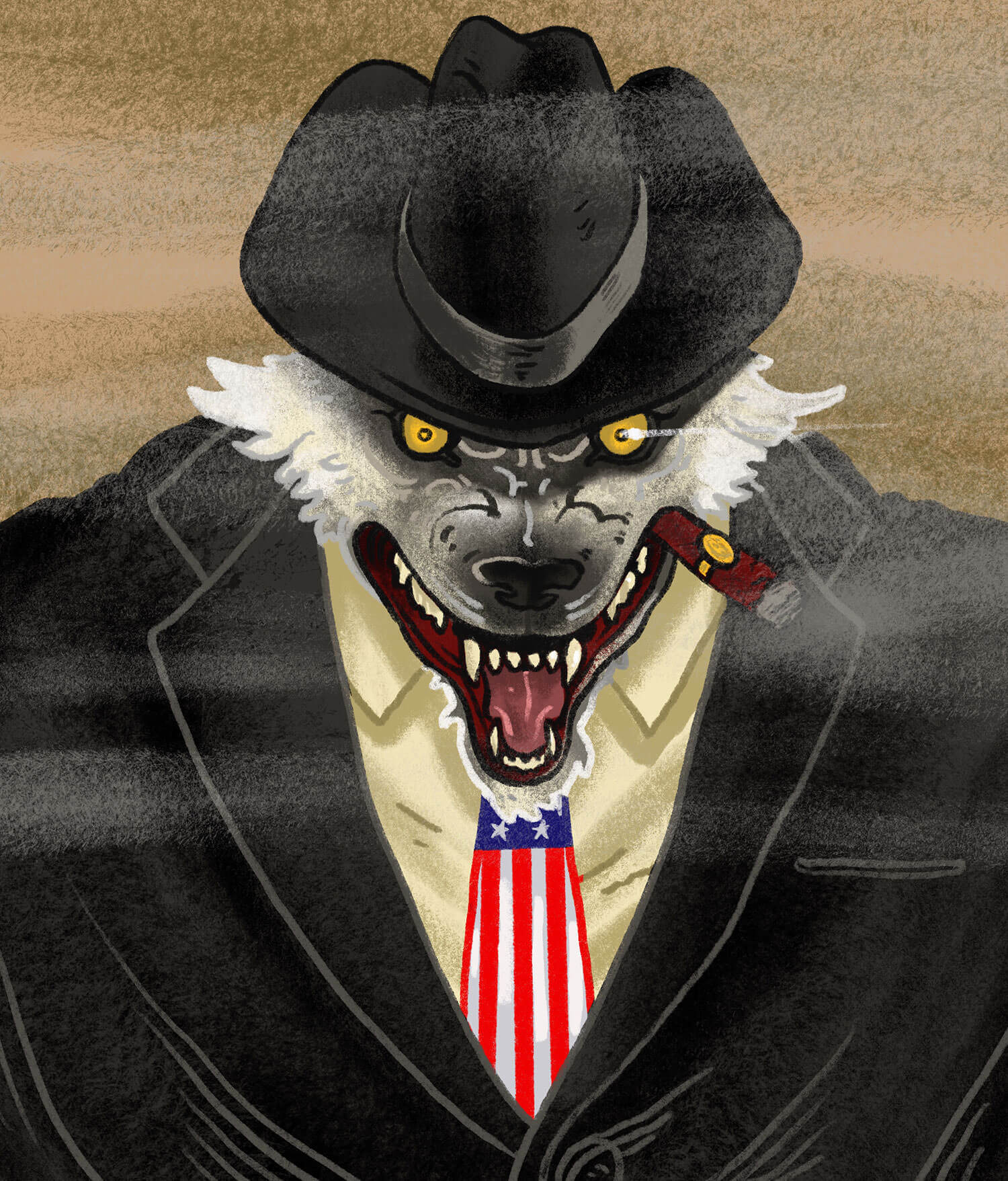
• • •
In “Great America”, there are cowboys, lawyers, and therapists.
In my personal and academic interactions with Native Americans, African Americans, and various immigrants and refugees, I have discovered that the cowboy spirit is part of the dominant collective unconsciousness of this country. Cowboys’ adventures to “the Wild West” were glorified as “the New Frontierism”. They were portrayed as the true ancestors of this “Land of Opportunity”, those who were brave pathfinders that made anything possible, “Real Men” like the Marlboro Man. This anything-is-possible masculinity of macho cowboys was, has been, and still is the ground of U.S. imperialism and “American exceptionalism”. This country has been built with “the Original Sin” of the genocide of Native Americans, land occupation, enslavement of Black people, and cheap labor of immigrants. And this cowboy spirit continues now in U.S. foreign policy and economic exploitation of the world. The cowboy spirit can be attractive if you belong to the cowboy community and their kind, but it can take your land, dignity, and life itself if you do not belong to that community. This cowboy spirit manifests itself mostly in U.S. military invasions, neoliberal exploitation, and destruction of world economies and fragile ecosystems.
Then there are lawyers. I have never experienced any country where the social place of lawyers is more prevalent and important than in the U.S. When I first arrived in Los Angeles, some Koreans told me, “You can live without a husband in L.A., but you cannot live in L.A. without a car and a lawyer.” I did not understand what they meant then, but now I know. When a country does not have organic communities based on common wisdom from ancient ancestors, community elders who are respected by the majority of community members and who carry the many generations of accumulated life experiences and good judgements, and community mediators and reconcilers, you have to go to professional lawyers to solve problems. The laws in the U.S., however, are not conceived, established, and applied equally to everybody. When the founders of America made a constitution that declared “all men are equal”, they definitely did not include women or enslaved Black people.
A great Black theologian of America, James Cone, used to tell a story that he heard from his southern community as a child. His elders told him the story:
When a rabbit was accused of doing something wrong against a wolf, he was sent to the court. Since the rabbit did not do anything wrong, he thought he would be released after the trial. But when he arrived in the court, he discovered that all judges were wolves, all prosecutors were wolves, all juries were wolves, and even his own lawyer was a wolf.
Of course, this is a cautionary teaching tale for young Black boys in Black communities in the South. Unfortunately, the essence of the story has not fundamentally changed in our time for people of color with less power and privilege in a white supremacist America. We know people with more resources will win in most trials. When I was in a situation of seeking a trial, a lawyer who wanted to help me said, “Professor Chung, law is not about truth or justice. The law is all about evidence. It is about who can produce and provide more evidence.” Her teaching is that people in the position of power and privilege actually create “facts” and many evidences against you if they want. Therefore, being a lawyer in this country, like any other profession (or more than any other profession) requires moral courage. As the first Black lawyer who graduated from Harvard law school, Charles Hamilton Houston said, “A lawyer’s either a social engineer or … a parasite on society.” I learned clearly from many years of working in peace movements and doing conflict resolution that it is really difficult to restore relationships and communities when you try to solve the problems by suing the opponents. People in this field recommend solving problems through the court as the last resort. It is hard to rebuild trust, which is the base of relationship and community, once you go to the court to solve a conflict. There are many historical evidences of how problems “solved” by the court system did not contribute to the restoration and rebuilding of communities.
When the cowboy spirit rules society, lawyers try to solve the problem via legal processes, which is usually the maximization of their clients’ interests without the wisdom of community elders and sages. What is left are lonely and wounded individuals who try to put their selves together in order to survive, people who cannot change the system out of cynicism or realism. Then is the time when they seek therapists who can hold them together to survive and function in a heavily dysfunctional society. When family, friends, and long-term communities of deep relationalities are fleeting, people become isolated islands without organic community support. There is no “community hospital of sick human spirit” packed with wise men and women, nor elders with many generations of living wisdom that existed in old cultures. Young America, with its teenage green soul that idolizes eternal youth, enables the professorial occupation called therapists to flourish. So, we go to total strangers, paying money to pour out our most intimate secrets and hurts in life. Therapists try to put our broken pieces of souls together with compassionate and undivided listening and wider or more balanced perspectives so that we can survive and adjust to society with more peace of mind. Of course, there are a few “revolutionary” therapists who think social change and social justice are imperative, and thus encourage their clients to change unjust systems rather than adjusting to the system. Most therapists, however, know the heavy psychological costs of the arduous struggle for social change in this system, and try to support their clients in becoming better balanced and adjusted people in a dysfunctional system.
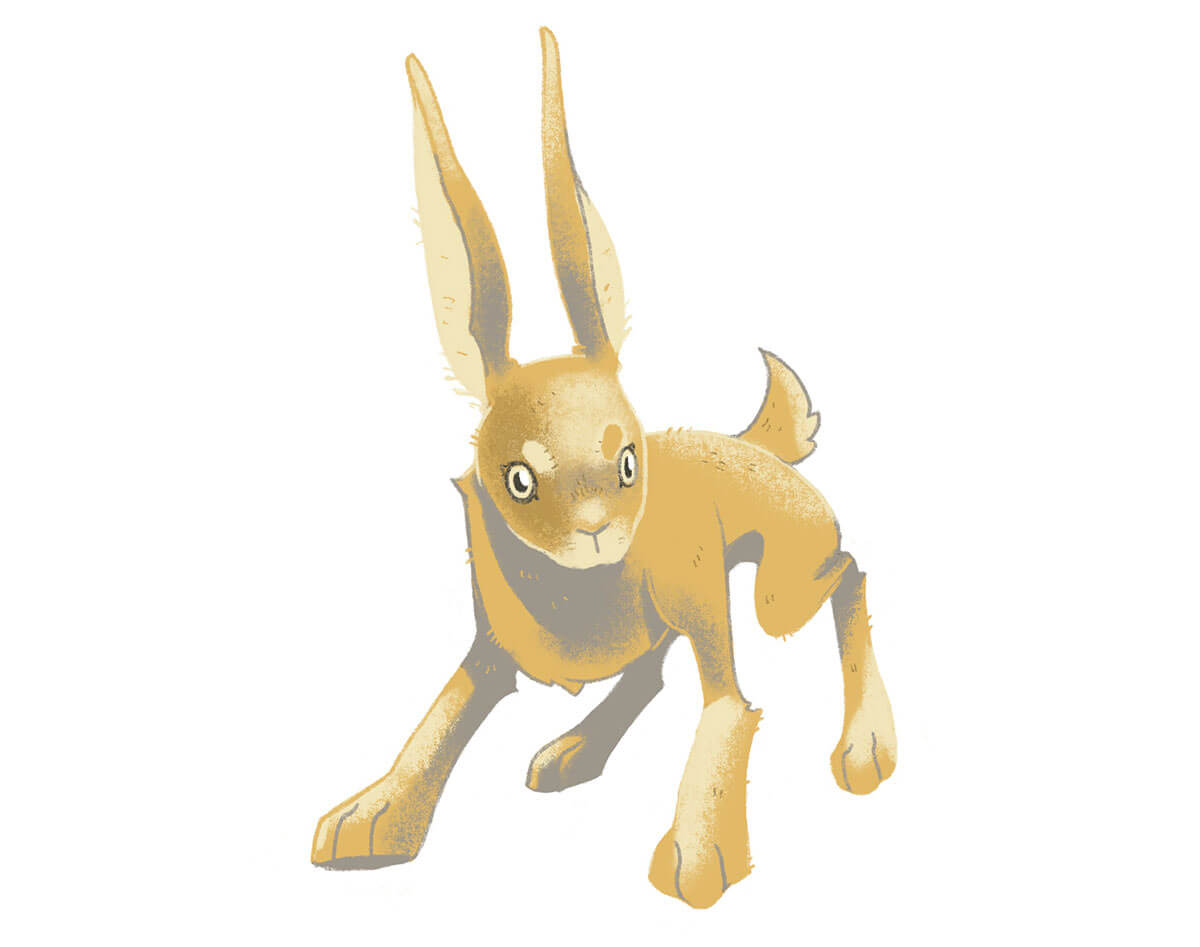
Therefore, at the end of the day, cowboys, lawyers, and therapists have become the “Unholy Trinity” of “America, the Great”. There are original creators, the cowboys. There are powerful redeemers of the systems, the lawyers. And there are compassionate therapists who “hear the groaning” of wounded suffering people. Of course, this is a simplistic cultural caricature of U.S. society from an intellectual migrant worker from the margin of America. I, however, believe that this simplistic but penetrating gaze is what caricatures do. Their job is to show something in its essence.
The biggest symptom of this culture of cowboys, lawyers, and therapists for me is the phenomena of mass incarceration of people of color in U.S. society. Michelle Alexander claimed in her book “The New Jim Crow: Mass Incarceration in the Age of Colorblindness” that “we have not ended racial caste in America; we have merely redesigned it”. I was stunned by the fact that there are more Black young people in prison than in college. Most of them are charged with a minor offense like drug-related incidents and have become a permanent underclass or low caste in the U.S. It is a great contrast with Scandinavian countries where prison facilities are closed down because there are no more prisoners. What are the differences? Differences are in the intention and system of the countries. While Scandinavian countries try their best to re-educate and rehabilitate prisoners to include them again in the social system with public support, the U.S. intentionally targets Black and Brown communities to be locked up and become permanent undercaste people within its criminal system. As Black lawyer activist, Bryan Stevenson, says, “Slavery didn’t end in 1865, it just evolved.”
As a former political prisoner and a theologian who follows the legacy of Jesus, who was a political prisoner under the Roman Empire and was tortured and murdered on the cross, I cannot see the prison system as a mere correctional system. The prison system is a symbol of social control and domination of those considered dangerous by the hegemonic power and principalities of a given society. The prison system is a method of controlling cultural imagination. As French philosopher Michel Foucault said, prison gives us the illusion that we are free. At least we are not incarcerated! A majority of common people, however, are metaphorically imprisoned by the political and economic and cultural system, which is based on the punishment of “Others” who raise serious questions and challenge unjust systems. Therefore, people who look deeply into the reward and punishment mechanism of dominant society realize the meaning of prison in one’s society. Maxim Gorky, a Russian writer, said, “Prison is the best university.” When you encounter people in prison, we see what is the naked essence of the society that you never learn in regular universities in the given system. A Korean political activist and spiritual mentor, the late professor Shin Young Bok, who spent 20 years of his life in prison, confessed that in a deep sense, every prisoner is a political prisoner. His pride of being wrongly accused by the system as a political dissident vanished when he met many “criminals” in his cell. He realized that he would have become a criminal if he had been born and raised in their family and situations of extreme injustice.
The system of U.S. mass incarceration seems like an intentional design of social control and capitalist investment by systematic incorporation of neoliberalism, white supremacy, and fascist political agenda. This system targeted the drug use of historically traumatized communities of color that suffer multi-generations of depression, addiction, and alcoholism. The vicious truth is that the dominant system intentionally introduced alcohol and drugs to vulnerable populations and communities who carry the cross of racism, poverty, and PTSD of returning from war. Then, the prison industrial complex produces its best interest and benefit from these populations in order to make the most money out of these people’s suffering. It is a social design to silence, pacify, and subdue the populations who could see the raw injustice of the society and would demand and organize for radical social change. It is a form of “preemptive strike” for potential future revolutionaries. This same system subjugates many countries in the world as well. Look at the situation of Palestine and many Muslim majority countries that the U.S. systematically destroyed after 9/11. With sanctions and war, The U.S. names many countries as dangerous to its own benefit, like in the prison system. North Korea is another example.
So, what can we do?
As a theologian, I cannot resign in despair and say it is not my job to stand on the shoulders of many prophets and revolutionaries in our faith traditions. All systems are made by human beings, which means that all systems can be changed by human beings. Actually, change and impermanence is one of the core teachings of world spiritual traditions. If we are “Image of God”, “Buddha Nature”, or “Divine Spark” in human forms, we have to use our divine power and agency to live out our true nature in any circumstance. Here are my remedies as a former political prisoner and a present virtual prisoner of this racist, militaristic, and neoliberal social system of control.
If you are in an actual prison system, I recommend three things from my own and many other prisoners’ experiences:
- Never give up on your divine true nature. You are more than your criminal records. You can restore your dignity under any circumstances because you are already god and goddess and Buddha. Please never forget and always remember your true nature, which cannot be defined by your oppressor.
- Use the prison system as your “best university”, learning from other people from the margins, studying their life as texts, and critically analyzing the conditions that underlie their current contexts. True change and transformation always come from the margin, not from the center of power.
- Make your prison cell a monastery for awakening and enlightenment, especially if you have a life sentence or death sentence. This is not the only life you have. You will have many lives to restore your dignity and fulfill your vision.
If you are a virtual prisoner of this system, here are my recommendations as a fellow virtual prisoner:
- Like what the New York subway teaches you, “If you see something, say something.” Always! This prison system is sustained not only by the few bad people in power, but also by many good people who do not say anything out of fear, self-interest, or mere tiredness and cynicism.
- Find and share solidarity with people who fight for their dignity, human rights, and social justice. When we start believing in our own power and the collective power of community and act together, the seed of radical change is planted, and it will come into fruition eventually.
- Expand your “Field of Freedom” wherever you are in your inner and outer lives. We came to this journey called life to experience and express our true nature as free beings. And we will die free. Or we MUST die free. That is every soul’s right and responsibility.
The good news in this time of chaos, climate change, rising fascism worldwide, military expansion, and neoliberal destruction of economy, is that Light will shine brightly more than ever due to this enormous despair. We already have seen it from our ancestors of spirit who received their best lessons for life and history in prison, such as Martin Luther King, Jr. in racist America, Dietrich Bonhoeffer under Hitler’s fascism, Nelson Mandela under the South African apartheid system, Yoo Kwan Soon under Japanese occupation (a girl activist who died in prison resisting Japanese colonialism in Korea), and Chelsea Manning, a truth-teller in the U.S.
Therefore, I take this virtual prison in my life as the best university of life and the best monastery of awakening to end all suffering and to build a “New Heaven and New Earth” of flourishment for all life, moment by moment. I invite you to also join this work of Love.
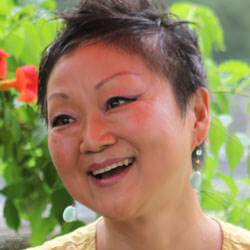
Dr. Tara Hyun Kyung Chung is a professor of ecumenical theology and interfaith engagement at Union Theological Seminary in New York City. She is a Christian Ecofeminist theologian and a Buddhist Dharma teacher in Korean Zen tradition. Professor Chung has been a councilor of International Interfaith Peace Council for the last 20 years trying to bring peace in conflicting areas in the world. She has been a bestseller writer and an international speaker in the area of feminist theology and spirituality, peace and ecological movement, interfaith engagement, and healing of deep personal and political trauma. As a therapist and a spiritual guide trained in Holotropic Breath Work and Transpersonal Psychology, she empowers “Soul Healing” for justice workers. She is an author of nine books and hundreds of articles including “Struggle to be the Sun Again: Introducing Asian Women’s Theology”. Now she is working on a new book, “ Ending All Suffering: a Feminist Enlightenment”. For workshop and lecture interest, please contact Professor Chung: hchung@uts.columbia.edu
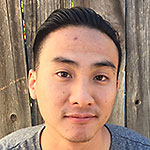
John Enger Cheng serves as creative director of Inheritance. He is a Los Angeles-based artist, designer and illustrator. He graduated from the University of Southern California Roski School of Fine Arts and is co-founder of Winnow+Glean. You can see his illustrative work and store at madebyenger.com.